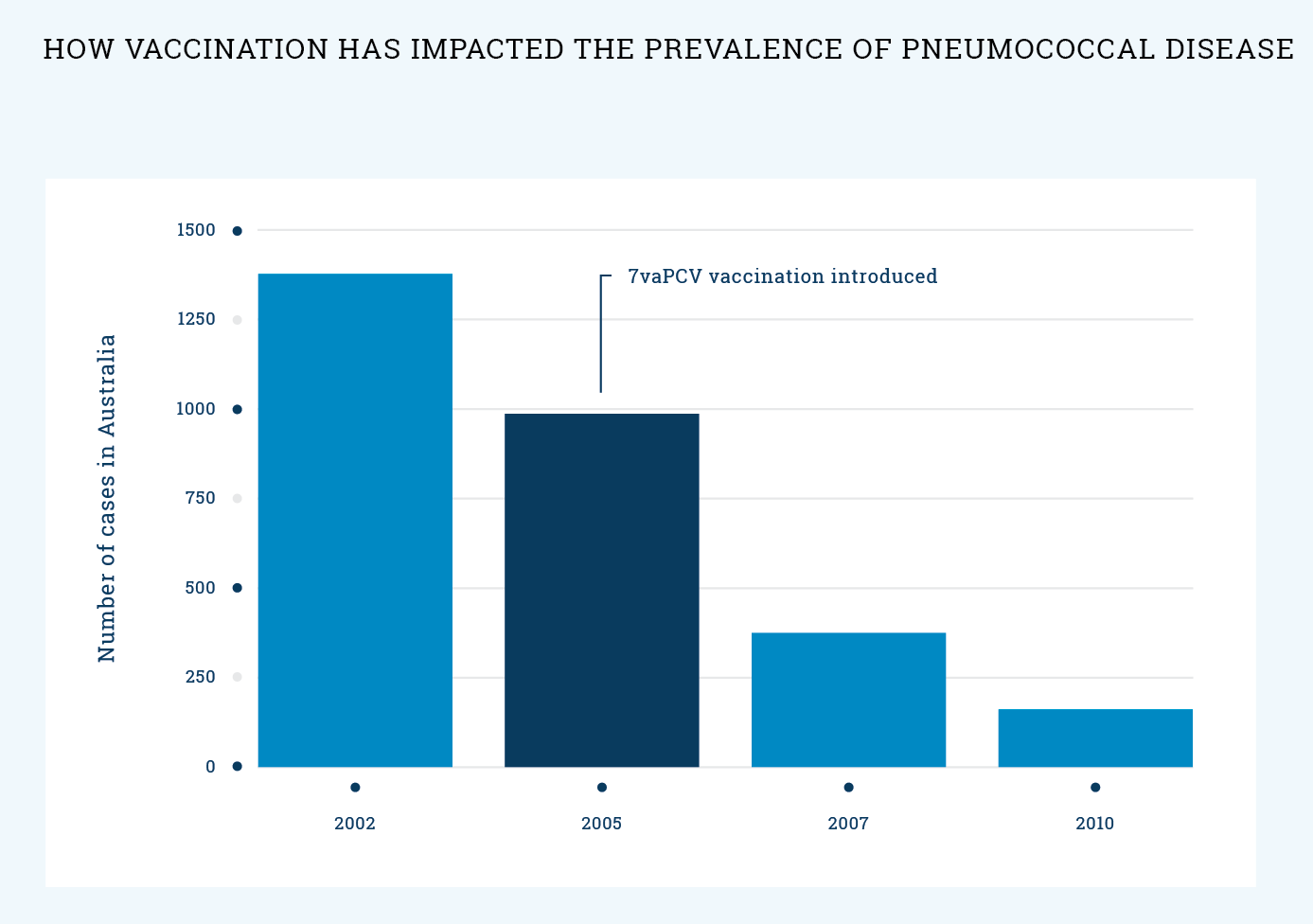Pneumococcal disease
Key facts
-
Pneumococcal disease can cause inflammation around the brain (meningitis), infection in the lungs (pneumonia), ear infections that can damage babies’ hearing and other serious diseases.
-
Vaccines are the best way to protect your child against pneumococcal disease.
On this page
- What is pneumococcal disease?
- What will happen to my child if they catch pneumococcal disease?
- What vaccine will protect my child against pneumococcal disease?
- When should my child be vaccinated?
- How does the pneumococcal vaccine work?
- How effective is the vaccine?
- Will my child catch pneumococcal disease from the vaccine?
- What are the common reactions to the vaccine?
- Are there any rare and/or serious side effects to the vaccine?
- What impact has vaccination had on the prevalence of pneumococcal disease?
